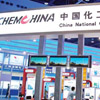-

【China Daily】Government workload heavy in 2016, Li says
The Chinese government will face a particularly weighty workload this year amid great uncertainty over world economic trends and China’s own challenges as it undergoes a period of economic transition.That was the thrust of remarks made by Premier Li Keqiang during the State Council’s plenary meeting on Friday in Beijing."At the moment, the world economy is developing with deep uncertainty, and the task for the Chinese government in 2016 will be heavy," he said.On Jan 6, the World Bank, headquartered in Washington, DC, cut the global growth forecast for 2016 to 2.9 percent, saying that weak growth among major emerging markets will weigh on global growth in 2016.Li noted that many world organizations also lowered their predictions for world economic growth several times in 2015, and China also has its problems and contradictions to face during this stage of transition.Therefore, the government needs to do a better job putting forward its structural reforms this year, especially its reforms on the supply side of the economy.Li also said comprehensive measures should be employed to maintain stable growth.The meeting, attended by officials from various State departments, was to discuss the draft of the Government Work Report, which will be delivered at the top legislature’s annual session in Beijing after the Spring Festival.The State Council will then send the work report to provincial regions to solicit opinions. It serves as a general guideline for the government’s work as it reviews progress in the previous year, makes plans and sets targets for the current year.Li said that China had met its major goal set in the 12th Five-Year Plan (2010-15), during which the country’s GDP rose from 40.9 trillion yuan to 67.67 trillion yuan ($6.2 trillion to $10.3 trillion).The achievement was not easy, Li said, adding that those measures that proved effective should be further employed and developed.The government needs to make concrete progress in handling the decrease in industrial profits, maintaining stable increases in China’s exports and imports, expanding effective investments as well as accelerating reforms of State-owned enterprises in 2016, Li said. He stressed that the government needs to pay attention to answering the concerns of society.This year marks the beginning of the country’s 13th Five-Year Plan (2016-20), a new national development plan that Li described as a defining stage for China in building a moderately prosperous society.The coming five years also will be a crucial stage for China in avoiding the so-called middle-income trap that many countries have found themselves in.Wang Huiyao, president of the Beijing-based think tank Center for China and Globalization(CCG), said that stabilizing China’s economy will be important in giving other countries confidence in the world economy."Having pessimistic feelings about the world economy is quite a typical phenomenon for many countries in the world, as many European countries are still in economic recovery and the US will have another year of presidential debate," he said. "China’s economy continuously grows larger, and its export figures started to decrease in 2015, which means that the country’s economic reliance on the world has decreased. Stabilizing China’s economy will help other countries with confidence during a world economic downturn."Wang, who began a term as one of the 10 counselors of China’s State Council, or the Cabinet, in early 2015, said that directly facing social concerns shows the government’s strength and confidence in achieving its goals in 2016.(By Zhang Yue)From China Daily, 2016-01-23
2016年1月26日 -
郑永年:中产阶层正在变成 “三明治夹层”
专家简介郑永年,新加坡国立大学东亚研究所所长、中国与全球化智库(CCG)学术专家委员会主任。从人口占比来看,中国的中产阶层仅占成年总人口的10.7%,大大低于全球水平的14%,与之形成对比的则是发达国家较高的中产阶层比例。 中国卷入全球化的浪潮,经历了产业革命,社会结构呈现出多元化特点;而随着国民思想的进步,权利意识的觉醒,复杂的社会矛盾也逐渐突出。 与此同时,中国的崛起也带来了外部地缘政治的一系列改变。在国内国际如此错综的环境下找到正确的方向,推进现代化的国家治理,成为一个重要的课题。经济基础对一个国家的稳定很重要 多数人谈论一个国家的治理,通常会从政治体制着手,并在此基础上进行分类。然而我认为,一个国家是根据经济基础的变化来调整政治制度的。世界上从来没有一个固定的、永恒不变的制度,判断一个制度的好坏,关键在于能否有效治理。 在当前的整个世界版图中,有效治理已成为一个难题。欧美的民主制度曾经在有效治理上取得了辉煌的成绩,但这一制度目前也出现了问题。美国等多党派的民主政治已经逐步由精英民主走向大众民主,并演变成党派的互相否决制,造成民主社会“空转政府”的现象。 而更多的国家,如中东、泰国、乌克兰也出现了对民主政治制度的水土不服。现在看来,让整个世界都建立像西方一样的民主秩序很难,中国也面临如何建立自己的秩序的问题。 与政治制度相比,经济其实对于维持一个国家和社会的稳定更加重要。任何一个政权、社会,乃至企业,只要经济搞得好,无论民主还是专制大家日子都好过,如果经济搞不好,不管什么政治制度,大家都很难过。 与美国通过内部制度的崛起不同,中国的崛起得益于良好的政策,即善政。改革开放之后,中国进入高速增长,良好的政策带动了经济发展,释放改革红利,但社会制度仍然缺失,消费社会仍未建立。中国的中产阶层还远远不够 从“善政”向“善治”转变,完善社会制度,推动中产阶层。 在任何政治体制中,中产阶层都是一个社会稳定的根基,有了一个强大的中产阶层,即使其他因素仍有所缺失,也不会出现大规模的不稳定状态。 2015年年初,美国总统奥巴马向国会提交了一份近4万亿美元的2016财年联邦政府预算案,其中最重要的内容就是推动21世纪中产阶层经济发展的理念。同样,新加坡政府向国会提出的财政预算案中推出多项措施,突出了扶持中产阶层和中小企业的重要性;习近平主席从2014年12月提出的“四个全面”的第一项,就是“全面建成小康社会”。而“小康社会”的概念,与“中产阶层”的思路不谋而合。 根据瑞士信贷银行2015年10月发布的最新报告,中国的中产阶层人数在2015年达到1.09亿,从绝对值上排在全球首位。但是从人口占比来看,中国的中产阶层仅占成年总人口的10.7%,大大低于全球水平的14%。与之形成对比的则是发达国家较高的中产阶层比例,其中澳大利亚最高为66%,新加坡、日本均有六成以上的成年人口进入中产,而美国、韩国则占到四成左右,甚至连南非的中产阶层都达到14.8%。 过去三十年,中国的经济增长比亚洲四小龙都要迅速,但中产阶层仍然捉襟见肘。中国产生了很高的GDP,但收入分配并不公平。目前为止,中国仍然没有建立起两头小、中间大的橄榄形社会,也正因如此,中国所倡导的消费社会迟迟无法实现。人民的收入虽然增加了,但没有好的制度保障。生一场大病就可以倾家荡产,在这种情况下,没有人敢去消费。 从历史上看,要维持一个国家的良性运转,中产阶层是关键的力量。近代国家统一之后,商人成为主导阶级,西方各国经济得到持续的发展。19世纪的工业革命带来了大规模的工厂和生产方式,产生了新兴的工人阶层,他们靠出卖劳动力维生。这是西方资本快速积累的黄金时期,但同时也是雨果笔下的“悲惨世界”。 20世纪初,意识到自己受到剥削的工人阶层爆发大规模暴力的社会自由运动,经过漫长的斗争,他们获得了工资的提升,并得到了更多的社会保障,从而造就了一个庞大的中产阶层。从原始资本主义到福利资本主义的转型,是一个政治和社会改革的过程,通过将部分资本注入社会,造就一个稳定的中产阶层,这是保持一个社会健康发展的前提。中国应借鉴东亚各国经验,建立橄榄形社会 能否建立以中产阶层为主体的社会结构,考验着执政者的职责与能力。与西方通过暴力运动造就中产阶层相比,中国应该借鉴东亚国家治理发展的经验。亚洲四小龙不仅创造了经济奇迹,更重要的是创造了一个社会奇迹,在二三十年内创造了一个庞大的中产阶层。 亚洲四小龙接受了欧洲早期暴力的工人阶层运动的经验教训,由政府主动制定社会政策:如日本60年代经济起飞时提出的工资倍增计划;台湾和香港通过扶持中小企业发展实现收入再分配。而新加坡虽然不倡导高福利的政策,但是在李光耀时代,政府为底层20%的穷人提供保护,为他们提供就业和培训,鼓励他们通过劳动改善生活,并通过“居者有其屋”的公共住房制度,以及低福利的中央公积金体系等培养了庞大的中产阶层。 政府在经济发展过程中主动做社会政策,使得东亚模式比西方更成功。中国应该更多地借鉴东亚各国的经验,由政府主导建立良好的社会制度,从而建立起最有利于社会和政治稳定的橄榄形社会。中产阶层正在变成“三明治夹层” 不过,在贸易全球化的冲击下,各经济体的中产阶层也在近年来面临再次被挤压的危险。 瑞银的报告指出,全球财富在2013年增加了8.3%,达到创纪录的263万亿美元,但是贫富差距却在进一步加大,1%的人拥有近50%的财富。尽管全球个人财富的平均值达到创纪录的5.6万美元,但是个人财富的中位数却从2007年金融危机爆发以来下降了14%。报告指出,自2008年以来,财富分配两极分化趋势在加深,这一现象在发展中国家的经济体中尤为突出。 从80年代开始的经济全球化带来了资本的流动,而“趋利避害”的本能导致资本家将生产转移到人力成本较低的欠发达国家,资本拥有者与工人工资的差距不断加大。资本是可以流动的,政府和选民却不能。政府失去了就业和税收,造成中产阶层面临压缩。 在全球化状态下,越来越多的社会问题都是由资本引起。但是,社会运动的反政府性质,更使得政府难以在资本、社会之间建立起一种均衡状态。 今天,很多政府都处于一种困境:“亲商”会招致选票的流失,而“亲民”会造成资本的流失。越来越多的政府难以在“亲商”和“亲民”之间达成平衡。小米、华为等企业纷纷走出去,这一战略是正确的,但同时它也带来了全球化的问题——不在技术所在国创造税收及工作岗位,而这,同样也是作为廉价劳动力提供者的中国在过去几十年经济飞速发展中所面临的现状。 尽管苹果富士康等跨国企业为中国带来了数以亿计的就业岗位,但却无法产生适合中产阶层的岗位。而这些流水线上的农民工并没有办法成长为传统意义上的中产阶层。 中产阶层正在变成社会中的“三明治夹层”,这是中国和世界都面临的难题。一个企业不在自己的国家创造就业和税收,这是人类共同面临的一个问题,不是哪一个国家的问题。本文选自新华网思客,仅代表专家个人观点,不代表机构立场
2016年1月25日 -

【China Daily】Global push
It’s not just Chinese state-owned and private enterprise behemoths grabbing the headlines for their overseas acquisitions; smaller companies are making waves, tooChina’s most important holiday, the Lunar New Year, is drawing near, but entrepreneur Shu Wenbin has no intention of relaxing and taking time out to party. Instead, it’s his busiest time of the year.Apart from meetings with potential partners across China, the general manager of Continental Interior Design and Construction Ltd also plans overseas trips to the United States and other markets to seek out business opportunities he may able to seize after the holiday."China’s real estate and construction industries have slowed down in the past two years, new residential and commercial projects are seeing sluggish growth, and investment prospects are uncertain," he says."Overseas markets, especially in Southeast Asia and South America will be new growth points. Prospects in European and US markets are also good."Shu’s company, which offers interior design and construction services, started its overseas business in 2012 through its partners, big state-owned enterprises operating overseas. The company has about 150 employees and annual revenue of about 300 million yuan ($45.5 million; 41.8 million euros), of which about 20 percent is from overseas.It used to enjoy about 30 percent annual growth on average, but in the past two years, with slower growth in the construction sector and rising labor and material costs, searching for new opportunities globally has become an attractive option."We are planning to set up a company and operate directly overseas, and I want half of the company’s revenue to come from overseas by 2017," Shu says.His company is typical of Chinese small and medium-sized enterprises that are increasingly going global at a time when the government is accelerating economic restructuring and easing restrictions on overseas investment.Headline-grabbing mergers and acquisitions by Chinese enterprises of totemic companies in the West suggest an invasion, but it was only in 2014 that China’s outbound investment reached $140 billion, for the first time overtaking inbound investment of $120 billion, according to the Ministry of Commerce. President Xi Jinping predicted in 2014 that China’s outbound investment will reach $1.25 trillion over the next decade.This trend is set to accelerate. The 2015 Report on Chinese Enterprise Globalization, published by the Beijing-based Center for China and Globalization(CCG) , says that in 2014 and the first six months of 2015, the annual number of newly increased outbound investments (686) was about six times the average number (121) from 2008 to 2013."We are on the verge of a big wave of Chinese companies going global," says Wu Jianmin, China’s former ambassador to France. "In the past, it was mainly big companies that were interested in going global, but now so are smaller and medium-sized companies. Many companies have realized that if they don’t look for opportunities globally, they will probably die in China finally."In 2015, Chinese companies made nonfinancial direct investments of $118 billion in 5,085 companies in 153 countries and regions, a year-on-year increase of 14.7 percent, according to the Ministry of Commerce.Wang Huiyao, director of the Center for China and Globalization(CCG), says in about 63 percent of the cases, Chinese companies’ overseas investments are between $100 million and $1 billion."The number of smaller outbound investments (below $100 million) is growing fastest, as private companies and SMEs are playing a bigger role," he says, adding that, in 2014, private companies’ outbound investments saw a year-on-year growth of 295 percent, and they made up of 69 percent of the total number of cases.Xiao Qiang, director of the China Small and Medium-Sized Enterprise Institute, says most SMEs that the institute has helped go global have annual revenue of between 50 million yuan and 400 million yuan and an employee headcount below 2,000.He says of the total, SMEs’ outbound investments account for 30 percent of the value and 80 percent by number of cases.Long Yongtu, former vice-minister of commerce, says the trend of Chinese companies going global is irreversible. China’s corporate and private bank deposits amount to more than 138 trillion yuan, and the abundance of capital makes it easier for Chinese companies to invest overseas."Globalization is to allocate resources globally. If Chinese restructuring is conducted with a global scope, its economic transformation would be less painful and is more likely to succeed," he says.Wang Chaoyong, founder and CEO of ChinaEquity Group, a Chinese venture capital institution, says there are three ways for Chinese companies to go global: products, industrial capacity and capital."I have observed huge changes in all these three," he says. "In the products, I have seen quality, added value, and brands have improved greatly. In capacity going global, a big feature is that, be it a state-owned company or SME, they cooperate and form clusters to explore overseas markets."For capital going global, Chinese investors in the past would typically buy US treasuries, European government bonds or some blue chips, but now private equity and venture capital have become the main avenues for capital going global."The number of overseas mergers and acquisitions is also increasing rapidly, through which many companies are able to get overseas products, technology, sales channels, design, and so on," he says.A recent example is Shenzhen Ellassay Fashion Co Ltd, a high-end female clothing company, which bought a Hong Kong company that owned the German fashion brand Laurel for 11.18 million euros ($12.1 million) as part of its global expansion. The takeover would see Ellassay own Laurel’s design, pricing and production rights at all its stores on the Chinese mainland.A recent report from Dealogic, an international information provider on investment deals, says Chinese outbound M&A volume increased for the sixth consecutive year to a record $111.9 billion in 2015, breaching the $100 billion mark for the first time.A recent report from Boston Consulting Group shows the changing trends in Chinese overseas M&As. From 1990 to 2014, about 40 percent of M&As were in energy and resources. But in recent years, only about 20 percent have involved energy and resources, while about 75 percent were in technology, brands and market share.Manufacturing is an important sector that has drawn the attention of Chinese entrepreneurs, who are encouraged by Made in China 2025, China’s national strategy to upgrade its manufacturing sector.Figures from the Ministry of Commerce show that, from January to November 2015, outbound investment in the manufacturing sector was about $11.8 billion, a year-on-year increase of 95.4 percent, with $5.89 billion going to equipment manufacturing, a year-on-year rise of 117.3 percent."Germany and the US, whose manufacturing is most advanced, have become targets for Chinese companies," Wang at the Center for China and Globalization says.Joyson Electronics, an auto parts company in Ningbo, Zhejiang province, is a typical investor in Germany’s high-end manufacturing. The company was established in 2004, and since 2011, has acquired four German companies in auto, software, robot and auto parts sectors. It has now about 20 production and sales bases and four research centers globally, and is a supplier for top car brands including BMW, Audi and Mercedes-Benz."SMEs should go global instead of just doing business at home, otherwise you would be sifted out. Overseas M&As could be a good way, " says Wang Jianfeng, president of the company. He says in 2009, when it first tried to sell auto parts overseas, the company met with many difficulties."It was impossible for Chinese SMEs to enter the overseas high-end auto and electronics industry then, but after we acquired a German company in 2011 the situation started to change," he says.Long, the former vice-minister of commerce, says an important platform that will accelerate Chinese companies going global is the Belt and Road Initiative, a development strategy proposed by the Chinese government in 2013.The initiative refers to the New Silk Road Economic Belt, which will link China with Europe through Central and Western Asia, and the 21st Century Maritime Silk Road, which will connect China with Southeast Asian countries, Africa and Europe."The world needs China’s investment. It is estimated that for infrastructure of countries along the Belt and Road to reach the global average level, at least $8 trillion in investment will be needed," he says.According to the Ministry of Commerce, in 2015, Chinese companies invested $14.8 billion in 49 countries along the Belt and Road, a year-on-year increase of 18.2 percent.Stephen Phillips, chief executive of the China-Britain Business Council, says the advantage of SMEs are that they are nimble and have entrepreneurial management teams good at seeking out opportunities."The SMEs are a very important part of the internationalizing process, and there’s almost a subtitle of SMEs, that they are almost born to be global, so those that have got great technology, or very innovative, they can actually be international companies more or less from day one," he says.From China Daily, 2016-01-22
2016年1月25日 -

【China Daily】Global presence doesn’t make a multinational
Visitors check out smartphones and other gadgets at the Lenovo stand at the 2015 IFA consumer electronics and appliances trade fair on Sept 4, 2015 in Berlin. Sean Gallup / Getty ImagesThe world will continue to see more and more Chinese companies internationalizing, experts sayAs Chinese companies ramp up their presence on the international stage with a string of headline-grabbing acquisitions catapulting them to global fame, some experts urge caution: Most still cannot be called true multinationals."I think there are a small number of Chinese companies that are already global companies, but it is a very small number, like Lenovo and Huawei," says Stephen Phillips, chief executive of the China-Britain Business Council."Some Chinese banks have a very significant international presence as well, but they mostly serve the Chinese customer base, rather than serve the international customer base, so they are only part of the way to becoming truly global in my view."Despite many state-owned enterprises that have an international presence and private sector companies that are beginning to internationalize quite rapidly, there are very few that are globally recognized."But it is changing really quickly, much more quickly than probably any other country," he says.Phillips says the world will continue to see more and more Chinese companies internationalizing, and they need to do it for at least two reasons: one is to diversify markets and the other is, if they genuinely want to be leaders in that field, they need to be exposed to global competition, whether in services or products, and by going outside the home market and competing with the best of the world."If companies mange that in that process, both accessing new markets and moving up the value curve, then they are going to be very successful, but not all of them will succeed. It is not easy, it is very competitive."Zhang Yang, a senior consultant with Spencer Stuart, a leading executive search and leadership consultancy, says that increasing overseas assets and income are only partial parameters of internationalization."If a company just invests in cheap resources overseas and then makes profit out of it, it is not truly internationalization, because they may not be a global company that adopts international standards and rules."She says international companies have different strategies and targets for different markets, and operate globally. Their management systems, governance and diverse talent would be important measuring standards. But if Chinese companies are gauged by these aspects, most of them would get low grades.She cites talent as an example. In many multinational companies, about 20 to 40 percent of the senior executive positions are held by talent sought globally, but in Chinese companies, the percentage is usually quite low: less than 10 percent.Qiao Jian, vice-president of the world’s largest personal computer maker, Lenovo Group, says that globalization is not just products or capital going global, but a global enterprise’s culture and leadership are key, which is what she learned from Lenovo’s failed experiences in the past.She says that in the first four to five years after Lenovo acquired the personal computer business of IBM, its business met great setbacks."When we reflect on it, at that time, we paid a lot of attention to products and strategy, but ignored the culture and leadership components," she says. "Managing people from different countries is not merely relying on policies and regulations but more about winning recognition from local customers, executives and employees culturally, so that we do business holding the same values."She says since 2008, Lenovo has made great efforts in global enterprise culture building, and its revenue is 15 times that of 10 years ago.Sun Yongfu, former head of the department of European affairs in the Ministry of Commerce, says that a company’s ability to integrate with the cultural and social environment in a given country is an important part of successful internationalization."We have seen many unsuccessful cases of Chinese companies going global, and the key is the differences in cultures, standards and concepts between the home country and the destination countries," he says."We are used to some ways of operating in China and would bring them to Europe and other parts of the world, but their culture, traditions and laws are quite different from us," he says. For example, Chinese employees would work overtime to get double pay, but Europeans might not hold the same view, he says.He says that Chinese companies should be able to adopt the destination country’s ways of operating and managing companies."They need to integrate with the local culture, respect local rules, get familiar with their management ways, do good in local communities and strengthen corporate social responsibilities. Currently, many companies are still deficient in these aspects."From China Daily, 2016-01-22
2016年1月25日 -
田溯宁:中国互联网园丁
田溯宁,1963年生于北京,1987年赴美留学,就读于美国得州理工大学资源管理专业并获博士学位。1994年在美国创办亚信公司,并于次年将公司移到国内,先后承建了CHINANET、上海热线、中国金融数据网等重要网络工程。亚信是在美国纳斯达克成功上市的第一家中国高科技企业。田溯宁现任中国宽带资本基金董事长、联想集团独立非执行董事、美国哈佛商学院顾问委员会委员等。1995年,我开始在国内创业。刚回国时,完全不懂什么叫业务,什么叫公司,就是一种简单的热情在支持着我要将互联网带到中国来。看到远方有很多美好的东西,就会想,要怎样把这个美好的事物、美好的形式带回祖国,这便是我们那一代人共有的价值观。留学与迷惘 我是1981年上的大学,那一届人都想出国。出国,是那个时代的一种时髦。 到了美国之后,感觉就像到了新大陆,那里有许多自己完全不了解的东西。出国之前,我没坐过飞机,飞机落到旧金山时看到那种万家灯火的景象,给我的印象很深。那时的北京还没有那么多汽车,那么大的机场,在那里的每一天都很震撼。1987年,我研究生毕业时一个月工资53元,还吃不饱饭,为了吃个大米饭都要打仗,而到美国后的奖学金是一个月700美元,简直是天文数字。 几年后,我拿到了博士学位,也能用英文交流,在美国的杂志上发表文章,但在内心深处还是希望自己做这些事跟中国有什么关系。而研究草类生态与中国没有什么关系,这种草类全世界只有得克萨斯有。在这种情况下,我不知道自己该干什么了,可预见到的研究粮农草,一辈子在得州生存的前景让我非常难受。 遭遇互联网 就是在那个时候,互联网为我打开了一扇窗。博士的最后两年,我在计算机上花费了大把时间,也通过网络认识了很多朋友,其中就包括我后来创业时的伙伴丁健。但当时还没有在这一领域创业的想法,真正开始思考将互联网与中国联系起来是在1992年美国总统大选时。 当时,我正住在一个美国人家里。他是学校民主党党支部的联络人,他们请戈尔来做竞选演说的那天我正好没事,他就领我去了。当时戈尔讲了20分钟的信息高速公路,听完之后我觉得挺有意思,也开始思索互联网可能会对中国产生的影响。之后,我又看了《时代》杂志的一篇封面文章,得到一些启发。于是我就结合两者写了一篇文章--《美国信息高速公路计划对中国现代化的意义》,阐述计算机和互联网会对中国产生的影响,文章后来在《光明日报》上发表了。 其实,很多当时在外留学的人都意识到了互联网对中国的意义,也想要把它带回中国。但当时中国并没有互联网,把它带回来的前路困难重重。很多人因此放弃了,而我则决定试一试,去找丁健商量创业,结果一拍即合,亚信公司也由此产生。亚信成立之时,美国的互联网市场已经发展得相当成熟,留下的空间也不多了,而中国在这方面还是一片空白。所以,亚信的创业元老决定先将Internet技术带回中国,建好中国的Internet主干网,我提出的宣传口号是“把@带回家”。看到远方有很多美好的东西,就会想,要怎样把这个美好的事物、美好的形式带回祖国,这便是我们那一代人共有的价值观。亚信、网通到云计算 1995年,亚信回国成立亚信科技,我开始在国内创业。刚回国时,完全不懂什么叫业务,什么叫公司,就是一种简单的热情在支持着我要将互联网带到中国来。 我记得特别清楚,回到北京时,我只拿了护照,没有美国的绿卡,没有美国的护照,身份证也没了。刚开始注册公司时完全不知道怎么做,也搞不清楚公司是中资还是外资,期权、股权也都是特别遥远的概念,最后光注册就花了三个月时间。当时还有一个问题就是拿到合同时,我们开不了银行账号,科技部底下的信息中心就给我们借了一个账号。当时就有人跟我说:田总,你胆子真大,还能让你的客户汇款到另一个公司账号上,而且还能拿出来。我们确实这样做了,他们也没有收我们的管理费。当时的状况虽然有些混乱,但充满着热情,遇到的人也特别好。创业时期的那段时光,到现在我还是觉得很美好。 1999年,离开亚信到新成立的中国网络通信有限公司就任总裁兼首席执行官。当时环境有点特殊:邮电部是一个相对封闭的体系,在那个体系里很难找新的电信公司去跟中国电信竞争,而且要去竞争还必须做新的技术、新的产业形态。我扮演推动者的角色,当时政府需要一个公司、一群人来打破垄断市场,我没有别的选择。当时新成立的中国电信很难招到人才,我就相当于一个活广告,别人看到了我的成功,知道跟着老田就能成功,就能赚钱。经过一段时间准备,我们确实招到了人,有的是海归,有的不是。我有意识地在各方面进行协调与权衡,希望团体的力量可以互补,可以最大化。 在网通,我学到了很多东西,尤其是最后几年,我从邮电部的老同事身上吸取了很多的营养和宝贵的财富。促使我最终决定离开网通的原因有两个:首先,网通上市了,我扮演的角色的使命和阶段性奉献已经完成;其次,网通路演时,遇到杨致远和在硅谷创业时认识的人,从中看到了新浪潮的到来。与我之前接触的互联网相比,现在的互联网已经发展成一种全新的力量,成为知识生产的组织者,而不再仅仅是个工具。 现在,通过这七八年的重新探索,我发现互联网正开始进入另一个辉煌的时期--产业互联网的时代。云计算或产业互联网成为我最想做的事。我一直在想,为什么运营商只能给客户提供打电话的服务,而不能提供计算和存储服务?云计算时代,网络就是一个超级大规模的计算机,它就像云一样无处不在,我们随时在上面存储资源。后台有一个无所不在、巨大的存储力量,像我们的大脑一样帮助我们记忆,这是一件特别美好的事情。 我一直在思考怎么能用三句话把云说明白。其实挺简单,原始社会时,人类在湖泊旁边生活,他们离不开水源。后来经过很长时间的发展,村落兴起,每家有了水井,这就像现在的计算机,每人都有一台。再后来,社会发展到城市出现,每家就不需要水井了,而是用自来水,这就相当于网络,相当于未来的云计算。那时候,每个人将不需要个人计算机,只要打开屏幕,计算的源头就开启了。 身边很多人劝我说:你快50岁了,应该学会享受生活。我觉得人是有很多东西驱动才不断前行的,对我来说,最根本的动力是好奇心。这可能跟我年轻时受到的科学训练有关,以前学生物学时,往往花一天或一个学期去研究一种草,记住它的分类,而我的一个导师一辈子就研究蚂蚁。这种时候必须得有好奇心,对未来世界的向往和好奇是驱动人在这种看似枯燥的研究中继续下去的动力。在我看来,去美国留学的经历开阔了我的眼界,在这里我第一次看到了互联网,认识了电子邮件,知道了原来在读书之外还有另外一个职业生涯叫创业。这段经历让我看到一个人即使没有钱,只要有梦想,就能够像苹果、戴尔那样创造出非常好的、能改变人类生活的伟大工具。文章选自《海归者说-我们的中国时代》,主编:王辉耀/苗绿,中译出版社
2016年1月25日 -
徐小平:信念的力量
徐小平,1956年出生于江苏泰兴。1987年至1995年,在美国、加拿大留学、定居,并获加拿大萨斯卡彻温大学音乐学硕士学位。著名留学、签证、职业规划和人生发展咨询专家,被中国青年一代尊称为“人生设计师”。曾任新东方教育科技集团董事、新东方文化发展研究院院长,现创立“真格”天使投资基金。不太平坦的留学路,充满坎坷的学生时代,造就了我坚忍不拔的性格。从准备留学申请文书,到在美国刷盘子打工,再到创立新东方,成立真格天使投资基金,我摸着石头过河,一步一步走到现在。我的前半生,一路荆棘,一路春光。留学,我年轻时的梦 我们那代人是在精神食粮相对匮乏的背景下成长起来的,所以,我对知识和文明有强烈的求知欲。改革开放前,我只能从有限的资源,如《唐诗三百首》《离骚》等中汲取知识。那时,大批优秀知识分子回乡,其中有我的音乐启蒙老师何冰和其他一些中学老师,虽然书籍匮乏,他们仍给我们讲述了不少的名著和典故。残缺不全的教育和强烈的求知欲构成了我们那代人独特的人格--对知识、文明、外部世界、新鲜事物都充满渴望。1978年恢复高考,我们欣喜若狂,压抑了多年的求知欲似井喷海啸般迸发。我如愿成为恢复高考后第一批大学生。 五年大学毕业后,我到北京大学艺术教研室当了一名教师。在北大期间,我和俞敏洪、王强关系最密切。一起吃饭,一起过节,相互照顾。我们渴望留学并付诸行动,王强学过英文写作,帮我打国际长途,但那个学校并没录取我。在中央音乐学院读书时,文化部曾有公派出国名额,但我没得到机会。 有两年时间,我日夜想着出国,做梦都跟出国有关,曾梦见在国外泳池游泳。我赴美之路充满艰辛,不仅有护照签证问题,也有政府间的人为隔阂,阻力很大。因此当克服重重困难,来到美国的一瞬间,我非常激动,犹如发现新大陆一般。出国实属不易,耗尽精力、时间、金钱和家人的期待,但这种经历为我日后在新东方做留学项目提供了经验。失败亦不妥协 说起来,我在美国从未真正立足过。那时,留学生梦想拿到学位,找到工作,买房买车,接父母出国,而这在当时是奢侈的。我太太硕士毕业得到一份年薪六万美元的工作,而我却屡屡受挫,压力很大。我曾到加拿大找过机会,也尝试回国发展,但都没有得到预想的效果。曾有人建议我做房产经纪或者考执照,找份工作,但我并没有接受他的建议。之所以未在北美立足,我总结出了三个原因。一、专业问题。我是学音乐教育的,本就很难就业。二、我的梦想。太太曾建议我读法律,但我不感兴趣,我还是想读文学,读艺术。三、心存祖国。我觉得中国的机会多,我可以施展才能的天地也大,我想创建公司,想做电视节目,想做娱乐界的大腕,所以我才在1992年回国探索创业。 美国星河灿烂,物质生活极大丰富。但我并未为之所动,而是追求自己最喜欢、最擅长、市场需求最大之事。这个方向从未改变。比如从中央音乐学院毕业后,我被分到上海文化局,离家虽近,但我婉拒了。因为我被北大吸引,要矢志不渝追求喜欢之事。村上春树曾说:“作家写作时身上有毒素,排出毒素,小说才能成形。”于我,这不是毒素,而是灵魂中最甜蜜的东西。于是,我1992年回国,1993年创业。如今,我在创作《中国合伙人2》,表达三个人创业成功的过程,这让我很快乐,找到了生活的理由。我从未放弃自己,一直想回国,改变中国文化,希望成为启蒙式人物。不论一无所有还是腰缠万贯,无论是处于令人羡慕的留学生之位还是经历创业的惨败。即使众叛亲离,也未曾忘记自己的梦想。我相信每个人都要怀疑自己究竟是谁,这能时刻提醒自己该朝着哪个方向发展。 1994年创业失败后,我回到加拿大,写剧本、传记,在所谓的文化界鬼混。准备回国前,俞敏洪到北美考察,他的到来为我回国提供了最完美的平台。他曾说,“这么多年,与天奋斗,与地奋斗,与人奋斗,其乐无穷。”如今想想二十年前的俞敏洪与现今相比,天差地别。1995年,他是个体户,如今新东方代表着中国民营企业万紫千红的春天。他接纳了我,在新东方,我的喜怒哀乐、挫折、渴望都得到了完美的释放。中国合伙人 在新东方,俞敏洪上课讲他的苦闷,王强上课讲他的成功--北大校园领袖和美国实验室,我讲学生的悲惨以及咨询我之后成功的过程。由于在国外多年,了解出国流程,我为新东方的学生提供留学服务,做得很精彩。其实,俞敏洪、王强和我三人就完美地构成了一个人奋斗的精神链条:首先要学好新概念、大学四六级等基础英语,再考托福、GRE出国。而我们三人,王强负责讲基础英语,俞敏洪教托福、GRE,我则提供出国服务。所以我们在产业链上也配合得很完美。 做留学要与众不同。我不会问对方是否能出国,而是考虑他该不该出国,出国将给他带来怎样的人生价值。有时,甚至有点刻意避开生意的目的,打造他的个人潜能。人生的选择和设计是新东方的精神,这奠定了新东方品牌里极其闪光的一部分。我们既做牌坊,也立牌坊。我的如是举措在于新东方给了我信任,我要对得起俞敏洪。 后来,新东方上市了。它变得和其他企业不一样,这让我们充满了精神上的愉悦。正如松下说的:“要电器像自来水一样大批量生产”,松下每生产一个电吹风、一台电视机,便实现了一次突破。新东方的学生从一个到一百个也是一种突破。新东方上市后,突然闲下来,使我很有挫折感。我常批评俞敏洪,三驾马车本可以继续奔驰在祖国大地上,但上市后我们的工作转变了。如今,我每天谈项目,把所创造的财富打出去时,依然在播撒新东方的种子和梦想。我们并未摆脱从前的心态,充满好奇心、渴望、参与欲,希望证明自己,从未变过。回到彼岸,绽放精彩 随着新东方等留学机构雨后春笋般得在中华大地上萌芽,短短的十几年间,中国的留学生数量呈几何倍数上升。留学生带来了普罗米修斯之火,他们用西方文明之光,照亮了伟大而古老的中华文明中某些未被现代文明照亮的角落。中华文明若能恢复当年的恢弘与辉煌,就能与世界最强的国家,在硬实力、软实力、吸引力上抗衡媲美甚至实现超越。 2009年,我首次到哈佛论坛做演讲,其中提到生长在中国并不意味着一定要回中国寻找人生,但要认清怎样实现自我,你的能力在哪里能最大限度地放光。当时,我并没说这个地方是中国。但每年去做演讲,主题就一个:回到彼岸,寻找你的家。这个家毫无疑问是中国,即使雾霾笼罩着北京,但有远见的人能看到一个晴朗的明天。文章选自《海归者说-我们的中国时代》,主编:王辉耀/苗绿,中译出版社
2016年1月25日 -

【China Daily】European tech companies are the target
China National Chemical Corp’s booth at an exhibition in Shanghai. The company’s acquisition of Pirelli was the largest China outbound M&A deal in 2015. Provided to China DailyEurope has become the top destination for outbound mergers and acquisitions over the past two years, as technology becomes the top target for Chinese companies, industry insiders say.A report from Dealogic, an international information provider on investment deals, says Chinese outbound M&A volume increased for the sixth consecutive year to a record $111.9 billion in 2015, breaching the $100 billion mark for the first time.Europe was the top region, accounting for almost a third of total outbound M&As, with $31.3 billion in 136 deals, the highest volume and activity level on record.China National Chemical Corp’s $9 billion acquisition of Pirelli, completed in October, was the largest China outbound M&A deal in 2015 and the third-largest Chinese bid for a European company.Technology was the top sector for outbound M&As, with a record $18.8 billion in 2015, up 87 percent from 2014, the report says."China’s economic transformation is about changes in its economic structure, which needs a lot of research and innovation, so Europe will be a very important partner, and they are more open compared with the United States," says Sun Yongfu, former head of the department of European affairs at the Ministry of Commerce.Sun says China’s investment in Europe exceeded Europe’s investment in China for the first time in 2014, and the trend is likely to continue."Europe was the birthplace of industry. If Chinese companies want to build their own research teams and start from scratch to do research and development, it would take a very long time for them to catch up with the global level, so they use the shortcut of M&As of overseas companies."He says about 30 to 40 percent of the technology that Chinese companies have imported is from Europe."Europe is very open. If companies want to seek technology to help their companies to upgrade and update, Europe will continue to be provide it."He adds that as Europe has not fully recovered from the global recession, many companies face a fund crunch and are welcoming Chinese companies.Stephen Phillips, chief executive of the China-Britain Business Council, says in the past five years, the United Kingdom has seen an average annual growth of about 85 percent of investment from China. He says the UK welcomes Chinese investment and has a good investment environment.He believes there will be more M&As in the UK, and more Chinese companies will take Britain technology to China.Harald Fuchs, China director for FrankurtRheinMain, which is in charge of international marketing for the metropolitan region, says Germans will be more used to the fact that more and more companies will be owned by Chinese enterprises.From China Daily, 2016-01-22
2016年1月25日